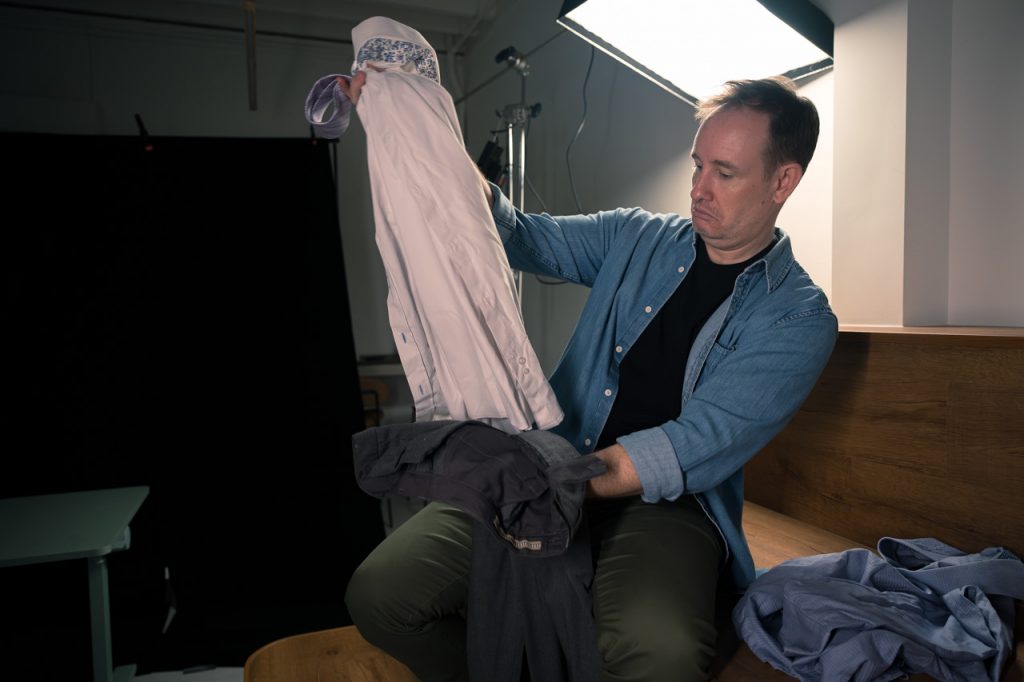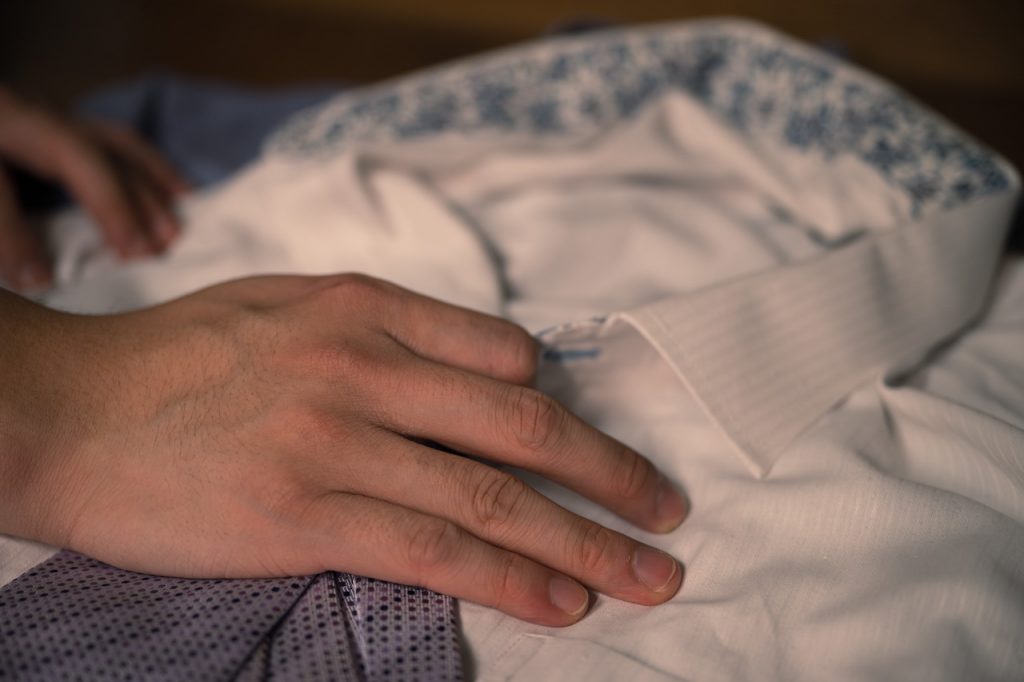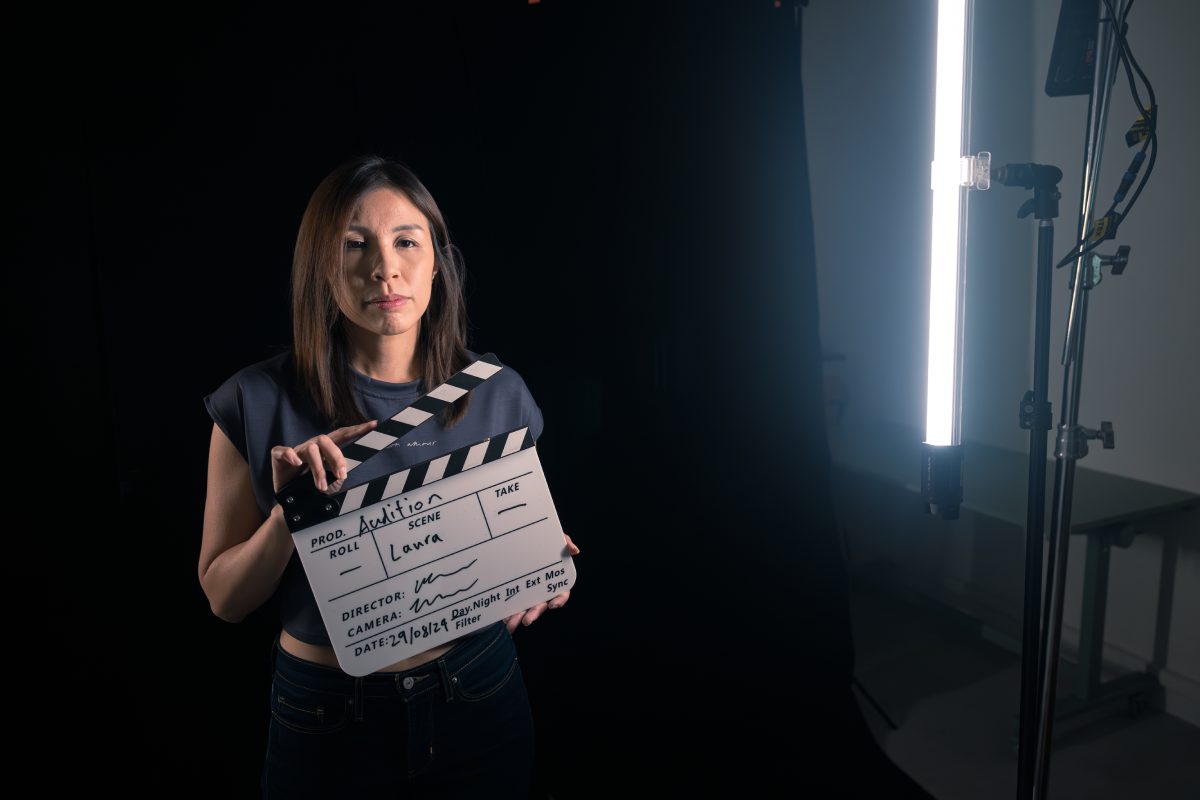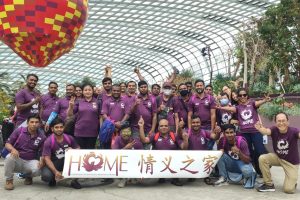All images by Benjamin Tan for RICE Media.
Content warning: This article contains mentions of abuse and sexual assault
“They said to me—fairly last minute—‘By the way, you’re going to be put naked into a pig cage, and you’re going to be in the water.’”
Neal Moore is incredulous as he recounts his recent experience acting in a local historical drama.
He remembers feeling utterly confused about what a ‘pig cage’ was. It was only as he shuffled awkwardly to the water with a cup over his genitals that he saw an oblong bamboo cage, barely larger than himself, that he was supposed to enter.
“When I got there, all I could smell was dead fish. It was because the water was absolutely vile.”
Equally as scary as the state of the water: The lack of any safety protocols on set.
“Nobody ever asked if I could swim—and I can barely swim. Nobody ever asked me if I had my Hepatitis A or Hepatitis B shots.”
Would there be a rehearsal? A countdown? A backup plan in case he couldn’t breathe? Instead of answering his questions, the stunt coordinator on set only seemed to grow more frustrated with Neal’s questions. The man mainly spoke Mandarin and didn’t seem pleased to have to explain himself in English.
“And then, without giving me any countdown or anything, he just pushed me in the cage, under the water and held me down.”
Neal says he struggled in shock and demanded an explanation from the stunt coordinator. But instead of apologising, the man squared up to him.
“I’m standing here naked, having a row in the water with this bloke who’s supposed to be there for my protection.”
Neal, a trained actor who works primarily as a business and communications coach, moved from the UK to Singapore 15 years ago and has been dabbling in the local acting scene for about two years. Whenever producers need a middle-aged Caucasian male character, he’s available.
Even though acting has been fun for the most part, it’s these occasional horrific encounters in the local show business that give him pause.
And it seems like nearly every actor he’s spoken to has horror stories to share about the dark side of Singapore’s entertainment industry.
Acting As If It’s Okay
There aren’t any official safety and welfare standards on sets in Singapore, actor and actor’s rights advocate Laura Kee tells me.
The result is that production crews often adopt punishing filming schedules and operate on lean budgets. As the lowest on the totem pole, actors regularly accept mistreatment to avoid making a scene or holding up production.

Laura, 40, has been acting for about 16 years. She also volunteers with The Actors’ Society, a ground-up initiative by actors, for actors. As part of her work, she organises meetups and panel discussions tackling actors’ rights and tries to engage with bodies like Visual, Audio, Creative Content Professionals Association (VICPA) and the Infocomm Media Development Authority (IMDA).
She shares one of the many urgent concerns: Intimacy coordinators, who liaise with the crew to ensure the welfare of actors involved in intimate scenes, are not mandatory here.
Laura tells me about one incident early in her career—sometime around 2008—that stuck with her. She was acting in a short film for the now-defunct Tisch School of the Arts.
The film included a rape scene. Right off the bat, she wasn’t comfortable as the guy she was acting with wasn’t a trained actor.
“When you’re not a trained actor, you tend to do it for real. I mean, not rape me for real, obviously. But the touching and all that is very real. You can say that you are playing a character, but it is really happening to you.”
Her voice remains calm; there’s steely eye contact as she describes the incident. “You have the memory of being touched. You feel dirty. You feel filthy at the end of it all.”

Alex* is another actor who’s felt beholden to the power dynamics on set. The actor, who’s in his twenties, wants to remain anonymous as he’s afraid of being blacklisted. He, too, says a lack of guidelines or prior discussion on intimate scenes means actors feel a subtle pressure to go all the way.
He recalls one audition for a particular project with an intimate scene.
“They sort of said you can go as far as you are comfortable with. No limits were placed. But in an audition setting, you kind of want to show the director that you are open to doing it.”
“Now, the director didn’t do anything to us. But just the power differential …” he trails off and shifts in his seat.
He continues: “You find yourself doing it, but you don’t necessarily feel comfortable.”
When there aren’t fight coordinators or intimacy coordinators on set, it then falls on the actors to choreograph these movements themselves, he says.

In her capacity as a TAS volunteer, Laura has heard her fair share of horror stories.
She’s heard from parents that child actors are made to wait for long hours in costume and makeup. Actors are told last minute that they have to drive for a scene, even though they haven’t driven in a long time. One actor was instructed to “drive like he’s drunk” and ended up mounting a curb for real, she says.
“One thing they always say on set is ‘Okay ah?’” Laura adds with a mirthless laugh. “What else can I say besides ‘okay’?”
I get the feeling that Laura could probably continue listing questionable incidents all day. In the absence of any industry standards, it’s almost like actors are sometimes treated as props. Their comfort and safety is a mere afterthought.
She tells me about another particularly egregious incident that took place on the set of a medical-themed commercial. There were medical needles on set, and shockingly, no one had thought to blunt them. Laura, who was playing a nurse, picked up one of the needles. It pricked her, drawing blood.
I wince at the thought, and she nods seriously.

“I mean, I don’t know how clean the needle is, first of all. Then what happened later on is, when this other lady playing the patient picked it up, it pierced her. So there’s this intermingling of blood involved, which is not a very safe thing in any setting.”
Jerry Hoh, who’s been acting for over 25 years, says he once had to be suspended upside down from a tree branch for a scene.
The actor, who declines to reveal his age, had read the scene in the script but wasn’t sure how it would be filmed. He wasn’t even briefed beforehand. When the day of the scene rolled around, he still didn’t know if he was actually expected to be upside down or if the crew would pull it off using camera tricks, he said.
“I just asked the art director, how do you shoot that? She said, ‘You just do your job. You never mind. Do your job properly.’”
In the end, he was strung upside down from a harness, with his head dangling a good 150cm from the ground.
He got the scene over and done with. But the next day, his stomach swelled up. When he went to a doctor, he was told that it was a psychosomatic symptom. In other words, his body had gone through a traumatic event, and the internalised stress was manifesting in symptoms like his mysterious swelling.
It was then that the reality of what he had gone through really hit him.
“The fact was that my mind registered [what I went through] as a danger, but I didn’t acknowledge it. That rope could have snapped. There was no mattress underneath. No talk about insurance. And on top of that, they were rushing me to finish the scene.”
These experiences end up filed away, only trotted out when actors gather to trade industry horror stories. But what’s rarely acknowledged is that all these instances could have gone very, very wrong.

When Local Productions Lowball
To be fair, problems with actors’ welfare aren’t a Singapore-specific issue. But Alex and Jerry both agree that the international productions they’ve been on are markedly better in terms of actors’ welfare.
Praises overflow when Alex tells me about the times he worked with American crews. US crews usually conform to Screen Actors’ Guild (SAG) guidelines on set.
Compared to local productions, the welfare standards are night and day. Everything from minimum payment rates to proper catering on set is outlined in these guidelines. Actors get a meal break every six hours.
Here, the unhealthy food options on set have actually affected his health, says Alex.
“They usually buy whatever is nearest and cheapest, and that’s not necessarily the healthiest. And if you’re working on a project for a long time, you’re repeatedly eating unhealthy food on a daily basis.”
He remembers working on one local production where the only F&B joint nearby was a roti prata shop. Packing his own food was difficult without fridges or microwaves readily available on set, so his meals consisted of prata all day long, every single day until the project wrapped.

With such an imbalanced diet comes weight gain. But as someone who makes a living appearing in front of the camera, there’s the unspoken pressure to keep slim.
“On dietary requirements, usually they will try to find Halal food. But if it’s any other requirement, besides an allergy, they will usually just say, ‘Oh we couldn’t find it.’”
Unlike Malaysia, where film crews tend to film only for a maximum of 12 hours, crews and actors in Singapore have to put up with long working hours. 14- to 16-hour days aren’t unheard of. And some commercial shoots can hit 20 hours on a time crunch.
Laura says she’s heard of a couple of instances where the crew is switched out after the shoot hits 14 hours. But, of course, acting talents can’t be switched. Oftentimes, though, the crew suffers alongside the actors, she says.
“If you talk about the actors working on set for 20 hours, you have to think about the crew who are there one or two hours before you. They leave one or two hours after you. So this is an industry-wide problem.”

Jerry has acted in China, Hong Kong, Taiwan, Thailand, Malaysia, and Cambodia. He, too, says conditions on Singaporean sets pale in comparison.
He’s animated as he recalls his time shooting in Cambodia. He only had five scenes in a film, but he was given a trailer, he says. It was shared with another actor, but it was still an unexpected luxury for him.
And when one of the animals on set playfully nibbled him—it didn’t even draw blood, he says—everyone dropped everything to check on him.
“It was the first time I experienced what it’s like when people really take care of actors,” says Jerry.
“I’m sorry to say, local producers and local productions—they are really very bad. They have bad practices and they influence other people who come over.”
Most international productions that film in Singapore treat their own actors and crew well. But sometimes, they take their cues from the standards set by local production crews and lowball local actors.
Jerry recalls one big-budget Hollywood production that came to Singapore to film and tried to pay their actors $200 a day. Even without a frame of reference, I gather that it’s a meagre amount.
Jerry laughs. “That’s shit, you know?”
Acting Comes At A Price
The topic of finances is a whole other Pandora’s box. I’m not surprised to hear that it’s yet another area where actors are screwed over. Most aspiring actors here are essentially freelancers, so they set their own prices.

But this is a double-edged sword. Alex tells me that rate negotiations can be nerve-racking.
“You always fear that if you ask for more, then you price yourself out of the market. And as an actor, you are a product. How do you negotiate for your business interests but at the same time, build personal relationships? It’s a very anxiety-inducing process.”
The lack of pay transparency also stems from the fact that price-fixing is illegal. Actors can’t band together to state that they will only work for a certain minimum sum. Essentially, it creates the perfect environment for production companies to lowball actors.
Alex reveals that a production company had tried to offer him a rate of $150 a day. However, as one of the main characters in the show, he should have been getting paid five to six times that amount.
It’s also getting harder to make a living on just acting alone. Alex and Jerry affirm that rates haven’t changed over the years despite inflation. In fact, they’ve only gotten lower over the years. Social media has made it easier for casting directors to find pools of cheap, inexperienced actors who’ll do anything for a buck.

Alex shakes his head as he says, “I know older friends who used to be in the industry. In the ’90s, they wouldn’t do a project if it was under S$1,000. Getting S$1,000 a day today is relatively unheard of unless you’re a celebrity.”
And then there are the little ways that production companies try to cut corners.
For one, there are projects now that go by hourly rates, Alex adds, which shouldn’t even be a thing. A daily rate should be the industry standard for freelance actors because once you’ve booked a job, you can’t book another job on the same day.
Another issue is that a lot of young actors also don’t know about usage rights or loading fees, he says. In simple terms, the more countries the project airs in and the longer your image is used, the more you should be paid.
“The younger and less experienced pick up the jobs without usage rights or loading fees. So that drives budgets lower,” says Alex.
Jerry adds that some production companies save costs on costumes by getting actors to raid their personal wardrobes for the shoot.
“In the past, fitting meant we go in and try clothes on and send them to the client to approve. But now, fitting means we bring our own clothes for them to choose.”


Both Alex and Jerry have also observed extras being assigned lines. Extras are typically paid around $50 a day and aren’t supposed to have lines. The moment you have lines, you’re an actor, and you should be paid as such, they say.
But why pay for an actor if you can save costs by assigning a few lines to a willing extra?
“These extras don’t know any better. Some of them are like, ‘Oh, I’m on TV. I can talk now,'” says Jerry.
Frustration bleeds through as he tells me, “In the past, work was given the most suitable talent. Now, work is given to the cheapest talent.”
Underserved, Unrepresented
The problem is as old as the acting profession itself and stretches across the industry, Laura says. It starts in film school when students learn to skip meal breaks when they’re overrunning. And it permeates the entire screen acting industry, from television productions to films.
Since TAS’s inception during the Covid-19 period, Laura has been trying to reach out to fellow actors and rally the community for events like open discussions and round tables. Progress has been steady but slow.
But there’s a palpable sense of hopelessness and acceptance that this is how things will always be.
The reality is that the community has always been fragmented. Laura tells me that before TAS, there were other associations that tried to make a change. But they’ve come and gone.
As freelancers, actors also don’t have union representation. Newbies sometimes don’t know where to turn to.
RICE understands that freelance actors involved in the creative industries such as voice-over artists, content creators and talents in corporate videos and advertisements can reach out to VICPA which champions freelance creative professionals.
As someone who’s been advocating for the community for a few years, Laura sees the patterns.
“It’s always the newest entrants—those who have been in the industry for one to three years—that see the problem. But usually, these people are the ones with the least power. The ones who are most powerful, the veterans at the top, are already thriving in the space, so there’s no real need for them to speak up.”
But it’s not as simple as actors banding together and speaking up. Even if some actors band together to demand better treatment, there will be people who will still accept low pay and bad jobs just to get a start in the industry.
That’s why the onus is on the people in power to do better. Change has to come from the top.

The entertainment and media industry relies heavily on government funding, Laura says. Indeed, the government spent between $175 million and $200 million on advertising in 2022.
“A lot of the money from our industry, be it from television, from film, from corporate videos, commercials come from the government,” Laura explains.
“The procurement departments of government agencies need to realise the effect that’s trickling down from them. There’s this mindset that the lower the budget is better, so we’re just racing to the bottom.”
If the people holding the purse strings could incentivise production companies to care more about safety and welfare standards, there’s an opportunity to see tangible change.
Neal concurs. He tells me that the common refrain from production companies is that they’ve got no budget.
“If you tell them to increase their budgets, they go, ‘Well, we can’t because we can’t make enough money on the product.’ Then change your business model!” he exclaims.
“If we had other means of funding that would bring more cash in, bring more private cash in, that would enable it to become a true industry. I mean, in no other industry would you be almost entirely reliant on government money.”

The current state of affairs is disappointing because Singapore has the potential to be a world-class entertainment hub like South Korea. But not whilst it treats its talents so poorly, Neal believes.
The Singapore Association of Motion Picture Professionals (SAMPP)’s president, Jasmine Ng, adds that it’s committed to working with TAS to create more safety nets within the industry. Jasmine, too, agrees that budgets are no excuse for any worker in the industry to be treated poorly.
While SAMPP is doing the work to promote best practices, more upstream protections such as re-looking at the Employment Act and the Workplace Compensation Act, to cover all workers, including freelancers, might be needed, says Jasmine.
“Cost concerns should never be the knee-jerk auto-response because you may unintentionally signal that some lives are cheaper than others. We should be advocating together for better and more responsible budgets from commissioners and clients.”
The ‘Privilege’ of Pursuing One’s Passion
While this story is primarily about actors’ welfare, the root of it really has to do with a deeper issue plaguing all creative fields: The perennial assumption that artists should suffer for their art. That they’re privileged to be pursuing their passion.
I can already see the Facebook comments dismissing the struggles in this article as complaints of the privileged few who chose acting as a profession. But why should anyone endure toxic industry-wide practices?

It’s not just actors who are suffering. We’ve also got crew members toting heavy equipment for long hours. Writers who are paid a pittance. Anyone who’s involved in any remotely creative career can probably relate.
Researchers have called this the paradox of creative work. Professional creatives worldwide pursue self-expression, creative freedom, and autonomy to do what they love. As a result, we tend to accept unsatisfactory work conditions. We’re more tolerant of being treated poorly to the point of exploitation.
And to what end? Is the end product something we can be proud of? Or is this ‘lowball’ culture getting in the way of Singapore’s goals to elevate our local showbiz industry and become a key arts and entertainment hub?
That’s not to say that there aren’t talented producers and superb local productions out there because there are. But how can they flourish in an industry notorious for shoestring budgets and squeezing talents dry?
Laura concludes our chat with a thought that should resonate with anyone in Singapore’s creative industry.
“This mantra of ‘do what you love’ has ruined us. Just because I’m pursuing my passion, does it mean that I have to stomach anything that you throw at me?”
“No, I’m still a person.”






